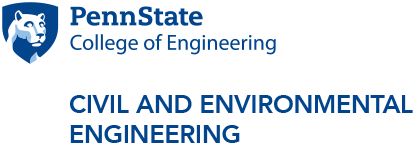Engineering faculty members named 2019 Highly Cited Researchers
11/19/2019
By Tessa M. Woodring
UNIVERSITY PARK, Pa. — The newly released Web of Science Group 2019 Highly Cited Researchers list features four Penn State College of Engineering faculty members. Long-Qing Chen, Donald W. Hamer Professor of Material Sciences and Engineering, professor of engineering science and mechanics and mathematics; Bruce Logan, Kappe Professor of Environmental Engineering and Evan Pugh University Professor in Engineering; Şahin K. Özdemir, associate professor of engineering science and mechanics; and Donghai Wang, professor of mechanical engineering and chemical engineering, were all honored as part of this year’s list.
The Web of Science Group, part of Clarivate Analytics, is an information and technology provider for the scientific research community. According to Clarivate Analytics, more than 20 million researchers at more than 7,000 research organizations — more than 95% of the world’s top research institutions and agencies — use the Web of Science Group’s services.
The Highly Cited Researchers list includes scientists from all over the globe who work in one or more of 21 different disciplines. To be named, researchers must have published multiple works that have been cited by a significant number of their peers during a 10-year period.
The work of these faculty members has been — and continues to be — cited tens of thousands of times by researchers around the globe. As stated on the Web of Science website, the individuals on this list are “world-class researchers” with “the most influential scientific minds.”
The 2019 Highly Cited Researchers list marks the top 1% of papers that were published and cited from 2008 to 2018 in specific fields. Approximately 6,200 published researchers were named to the 2019 list — 3,700 researchers highlighted in specific fields and 2,500 recognized in cross-field performance. Researchers may not be named to their specific field, but rather a field in which their work is considered to have the highest impact. For example, an engineering faculty member may be recognized in physics or mathematics for the influence his or her fundamental research has in those fields.
“It’s an outstanding achievement for these four researchers,” said Justin Schwartz, Harold and Inge Marcus Dean of Engineering. “Not only does this continue to elevate their work, but it also highlights the significant impact they have in the research world.”
Logan was named to the list for his highly cited publications in the environmental and ecological category. Logan’s research focuses on developing renewable energy technologies to achieve a sustainable water infrastructure. He is currently developing technologies based on microorganisms that can donate or accept electrons from electrodes, creating a renewable fuel cell, as well as other electrochemical technologies for desalination, energy capture and nutrient recovery from treated waters.
Wang was recognized for his research across multiple fields, specifically in engineering and materials science. Wang’s research focuses on nanomaterial development for clean energy technologies, such as batteries, solar cells, fuel cells and environmental remediation. Specifically, he aims to use material chemistry, electrochemical engineering and nanotechnology to develop unique multifunctional materials for use in energy storage systems suitable for emergent applications, such as electric vehicles.
Chen was recognized as a highly cited researcher in the cross-field category for his work in engineering and materials science. His publications primarily focus on computational materials science. He works to understand, predict and design materials microstructures, with a focus on their properties and evolution during the processing of materials. Most recently, Chen is working to develop and implement computational models for multifunctional microstructures, lithium-ion batteries, two-dimensional materials, additive manufacturing of metallic alloys, polymer composites and quantum materials.
Özdemir was named to the list for his highly cited publications in the physics category. His research focuses specifically on optical physics and micro/nano-photonics, which is the broad study of how photons behave and interact, as well as the application of this understanding to new technologies. He investigates topics including, but not limited to, parity-time (PT) symmetry in optics, achieved by balancing gain and loss in an optical system and has led to the development of a new paradigm for building systems with novel properties and functionalities; PT-optomechanics, the study of the interaction of photons with mechanical systems; sensing; and the quantum properties of light and how it interacts with matter at the micro- and nano-scale. Özdemir is currently working to develop novel optical techniques and systems that would lead to fundamental scientific and technological advances in controlling the generation and transmission of light and its interaction with matter both in the classical and quantum regimes.



